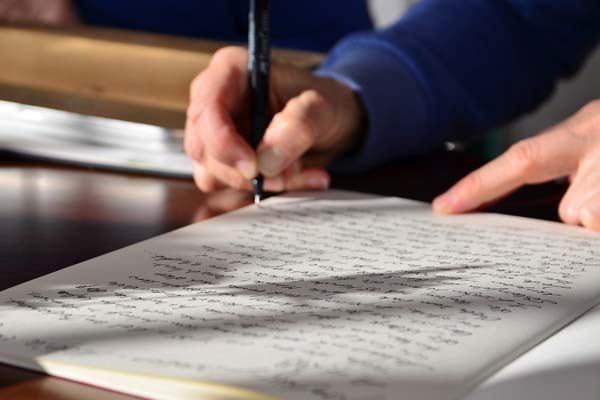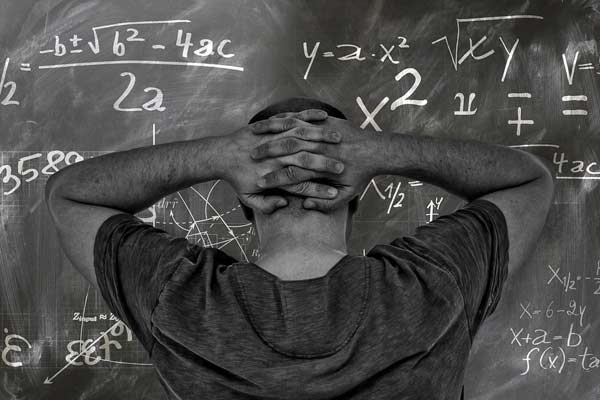Hardest IB Subjects: A Breakdown of the Toughest Courses
The difficulty of an IB subject depends on assessment methods (memorization or critical thinking) and the percentage of high-scoring students.
For instance, Further Maths HL is tough, with only 7.3% scoring a 7 in 2021. Average scores also matter; English A Literature HL, with an average of 4.67, is considered challenging.
Mathematics in IB
Mathematics is one of the core subjects in the International Baccalaureate (IB) program and is offered at both standard level (SL) and higher level (HL). It is a challenging subject that requires students to have a strong foundation in algebra, geometry, and trigonometry.
The Mathematics HL course is considered one of the most difficult subjects in the IB program. It is designed for higher mathematics, engineering, or physics education students.
The course covers topics such as functions, calculus, and vectors. Students are expected to have a deep understanding of these topics and be able to apply them to solve complex problems.
The Further Mathematics HL course is even more challenging than Mathematics HL and is only recommended for students with a strong passion for mathematics.
This course covers advanced topics such as complex numbers, group theory, and differential equations. Students who take this course are often well-prepared for university-level mathematics courses.
In both Mathematics HL and Further Mathematics HL, students are expected to have strong problem-solving skills and be able to think critically. They must also be able to communicate their solutions clearly and concisely.
Language and Literature
Language and Literature studies are part of Group 1 of the IB program, which includes language-related subjects.
English A Literature HL is considered one of the most challenging courses, with an average grade point of 4.67 out of 7. The percentage of students who scored the highest number is only 2.5%.
In Language and Literature courses, students learn to analyze and interpret literary texts and develop communication skills. The courses require a deep understanding of the texts’ language, culture, and historical context.
🌟 Hey Students! 🚀 Ready for the ultimate experience? Join us on Studentsinside.com's Facebook, YouTube, WhatsApp, and LinkedIn. Click now for tips, fun, and success vibes! 🌈✨ #StudentLife #JoinUs
Apart from English A Literature HL, there are other Language and Literature courses, such as Language A1, Spanish, and French. These courses also have high academic standards and require students to have a strong command of the language.
In addition to the Language and Literature courses, there is also Spanish AB. SL has the lowest average score of any foreign language course.
Students who take this course must have little to no prior knowledge of Spanish. The course covers basic grammar, vocabulary, and communication skills.
Individuals and Societies
The Individuals and Societies (I&S) group in the IB program includes subjects such as History and Economics. These subjects help students understand the world around them and how individuals and societies interact.
History is a popular subject in the I&S group, offered at both HL and SL levels. History HL is considered one of the most challenging subjects in the IB program.
Students must analyze historical events and their impact on society and be able to write detailed essays demonstrating their understanding of the material.
Economics is another subject in the I&S group offered at both HL and SL levels. While Economics HL is not considered as challenging as History HL, it is still a difficult subject that requires a strong understanding of economic theory and principles. Students must be able to analyze economic data and apply economic concepts to real-world situations.
Sciences in IB
The sciences subjects in the International Baccalaureate (IB) curriculum are among the most challenging. The Group 4 subjects, which include Physics, Chemistry, and Biology, are designed to develop students’ scientific inquiry, analytical, and critical thinking skills.
Physics HL is considered one of the most difficult subjects in the IB curriculum due to its complex mathematical concepts and theories. Physics SL, on the other hand, covers the fundamental principles of physics and is less challenging than HL.
Physics HL demands a robust foundation in mathematics and a profound grasp of physics principles. In the sciences group, Biology poses another formidable challenge.
IB Biology HL delves into cell theory, genetics, and the chemistry of living organisms. Students must engage in experiments and data analysis to comprehend biological concepts.
On the other hand, IB Biology SL covers fundamental biology concepts and is comparatively less demanding than HL.
Chemistry is a subject that requires a strong understanding of mathematical concepts and scientific principles. IB Chemistry HL covers plant science, organic chemistry, and biochemistry. IB Chemistry SL covers basic chemistry concepts and is less challenging than HL.
The Arts and Other Courses
Regarding the International Baccalaureate (IB), Group 6 courses are known for their creativity and self-expression.
Visual Arts is a popular choice among students, with both the HL and SL courses offering opportunities to explore their artistic abilities and create a personal body of work.
However, it is important to note that Visual Arts HL is considered one of the most challenging courses in the IB program.
Music is another Group 6 course that requires a high level of dedication and skill. Students are expected to perform and create original pieces and analyze and appreciate music from various cultures and periods.
Theatre is also a challenging course that requires students to develop acting, directing, and technical theatre skills.
While the arts courses are known for their difficulty, other courses in the IB program can also be challenging for students.
For example, Mathematics HL is known for its rigorous curriculum and high level of mathematical theory. Biology HL and Chemistry HL are also challenging courses requiring a strong scientific foundation.
Additional Components of IB
In addition to the six subject groups, the International Baccalaureate (IB) program requires students to complete three additional components: Theory of Knowledge (TOK), the Extended Essay (EE), and Creativity, Activity, Service (CAS).
Theory of Knowledge (TOK)
TOK, a critical thinking course centered on understanding knowledge, prompts students to challenge assumptions and delve into the nature of knowledge acquisition.
The curriculum aims to cultivate students’ perspectives and enhance their understanding of diverse viewpoints. Assessment involves an oral presentation applying TOK concepts to real-world scenarios and a 1600-word essay exploring a profound knowledge question.
Extended Essay (EE)
The Extended Essay (EE) is a 4000-word research paper that allows students to explore a topic of their choice in depth. The EE is an opportunity for students to develop their research skills and explore a topic that they are passionate about.
An external examiner assesses the EE and is a requirement for the IB Diploma. Students are expected to demonstrate independent research and analysis and strong writing skills.
Creativity, Activity, Service (CAS)
The Creativity, Activity, Service (CAS) program encourages students to engage in extracurricular activities. The goal of CAS is to promote personal growth and to develop well-rounded individuals.
CAS requires students to complete 150 hours of activities with a balance between creativity, activity, and service. Students must reflect on their experiences and demonstrate that they have met the program’s learning outcomes.

Group 2 and Group 5
Group 2 consists of language acquisition courses, while Group 5 consists of mathematics and computer science courses. While these courses are not considered additional components of the IB program, they are an important part of the curriculum.
Group 2 courses are designed to develop students’ language skills and to promote intercultural understanding. Group 5 courses are designed to develop students’ analytical and problem-solving skills.
Resources and Support
- Online resources: There are many online resources available for IB students, including websites that offer study guides, sample papers, and practice exams. Some popular resources include IB Documents, IB Academy, and IB Survivors.
- Notes and textbooks: Many IB students find it helpful to use notes and textbooks to supplement their learning. Some popular textbooks include the Oxford IB Diploma Programme series and the Cambridge University Press IB Diploma Programme series.
- Teachers: IB teachers can be a valuable resource for students, as they can provide guidance and support throughout the course. Students should feel comfortable approaching their teachers with questions or concerns about the material.
- IB students: IB students can also be a great resource for each other. Students can form study groups or collaborate on projects, which can help them learn from each other and stay motivated.
- Candidates: IB candidates can also benefit from attending review sessions or workshops offered by their schools or external organizations. These sessions can provide additional support and help students prepare for exams.
- Homework: Homework is an important part of the IB curriculum, as it helps students practice and reinforce the material they have learned in class. Students should complete their homework on time and seek help if they struggle with any assignments.
Tips and Strategies for Success
Success in the hardest IB subjects requires dedication, hard work, and a few tips and tricks. Here are some strategies that can help students succeed in their studies:
- Develop good study habits: Consistency is key when it comes to studying. Students should set aside daily time to review notes, complete assignments, and prepare for exams. They should also create a study schedule that works for them and stick to it.
- Practice critical thinking: The hardest IB subjects require students to think critically and analyze information. Students should practice analyzing texts, data, and arguments to develop these skills. They should also learn to ask questions, evaluate evidence, and draw conclusions.
- Seek help when needed: Students should not hesitate to ask for help when struggling with a topic or assignment. They can seek help from their teachers, classmates, or tutors. They can also use online resources like study guides and practice exams.
- Build on their abilities: Students should identify their strengths and weaknesses and improve their abilities. For example, students good at math should focus on taking higher-level math courses. They can take writing courses or work with a writing tutor if they struggle with writing.
- Stay motivated: The hardest IB subjects can be challenging, but students should stay motivated and focused on their goals. They can do this by setting achievable goals, rewarding themselves for their accomplishments, and staying positive.








